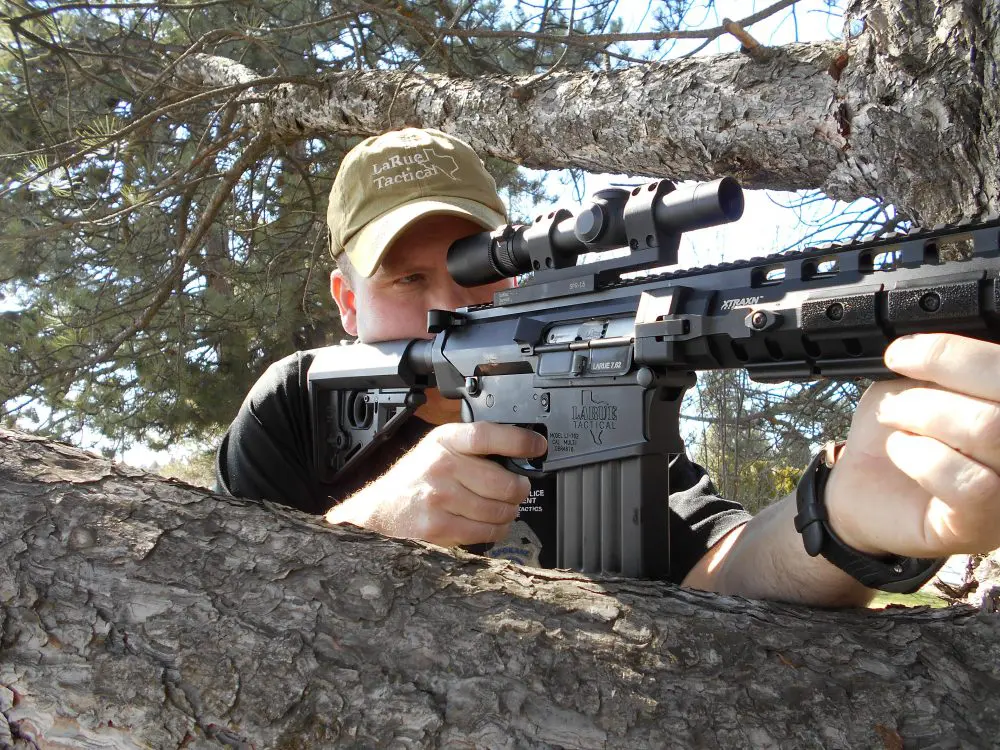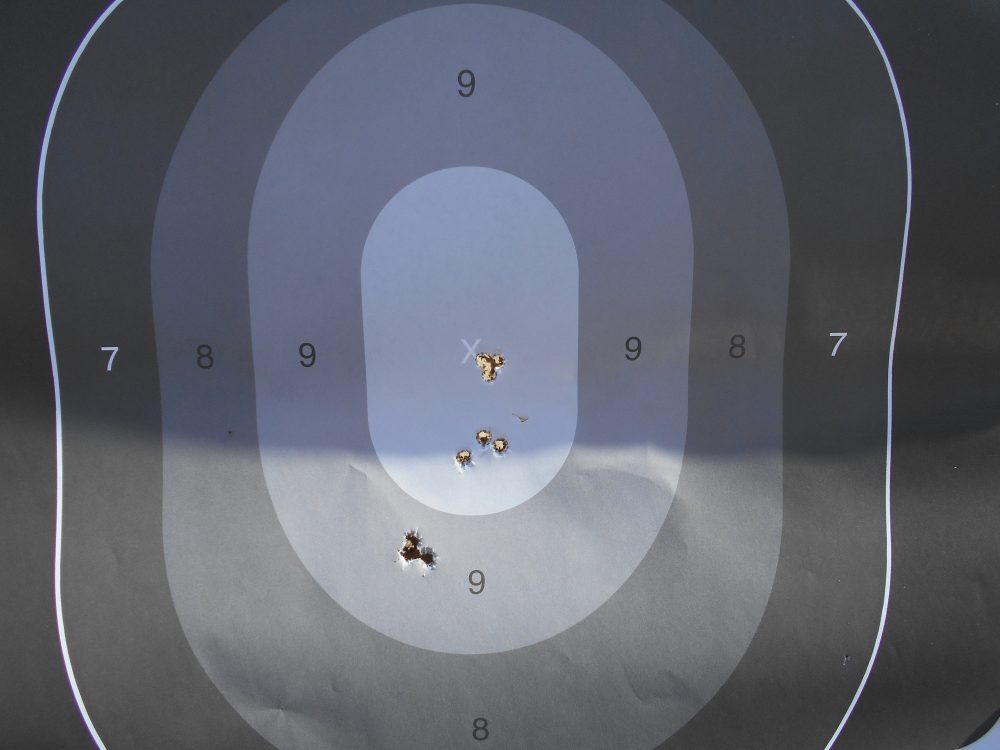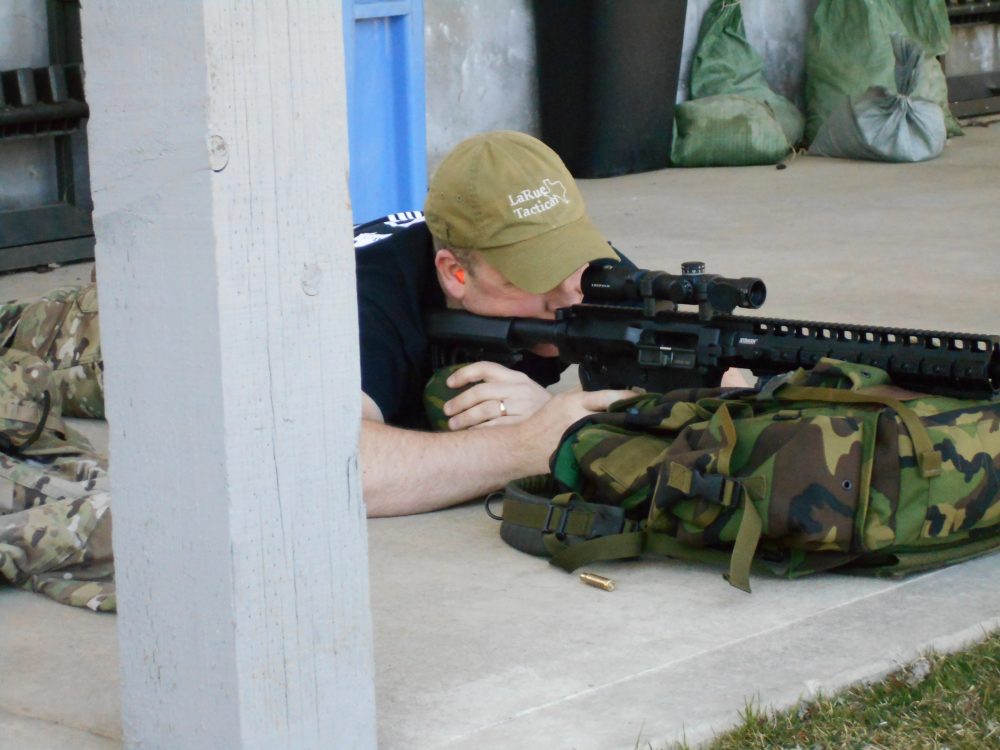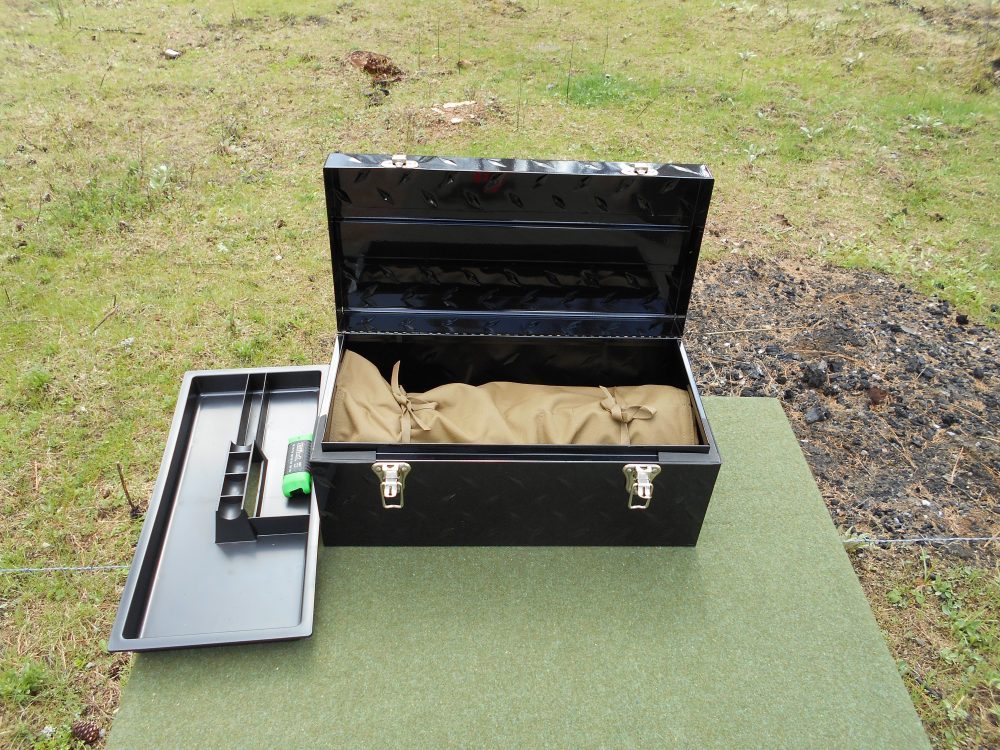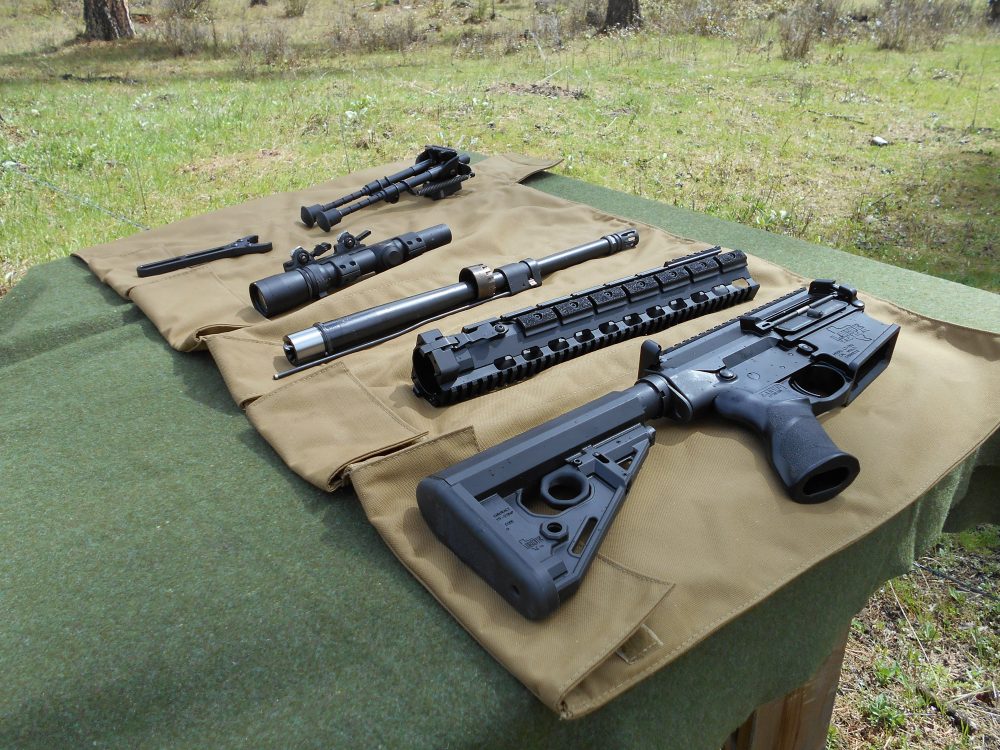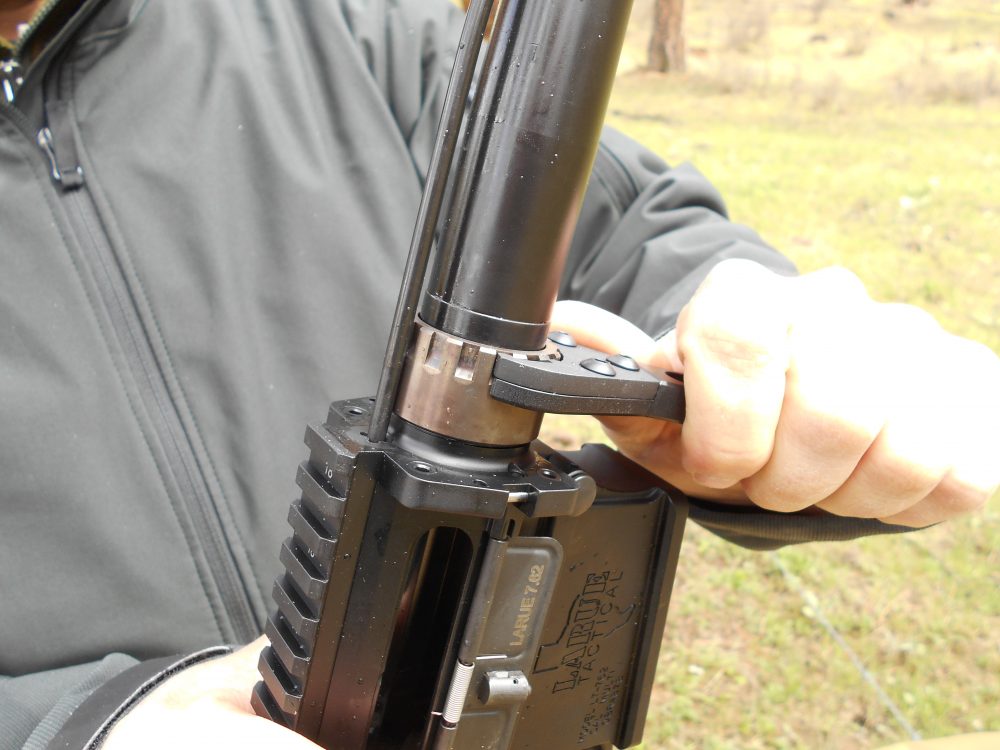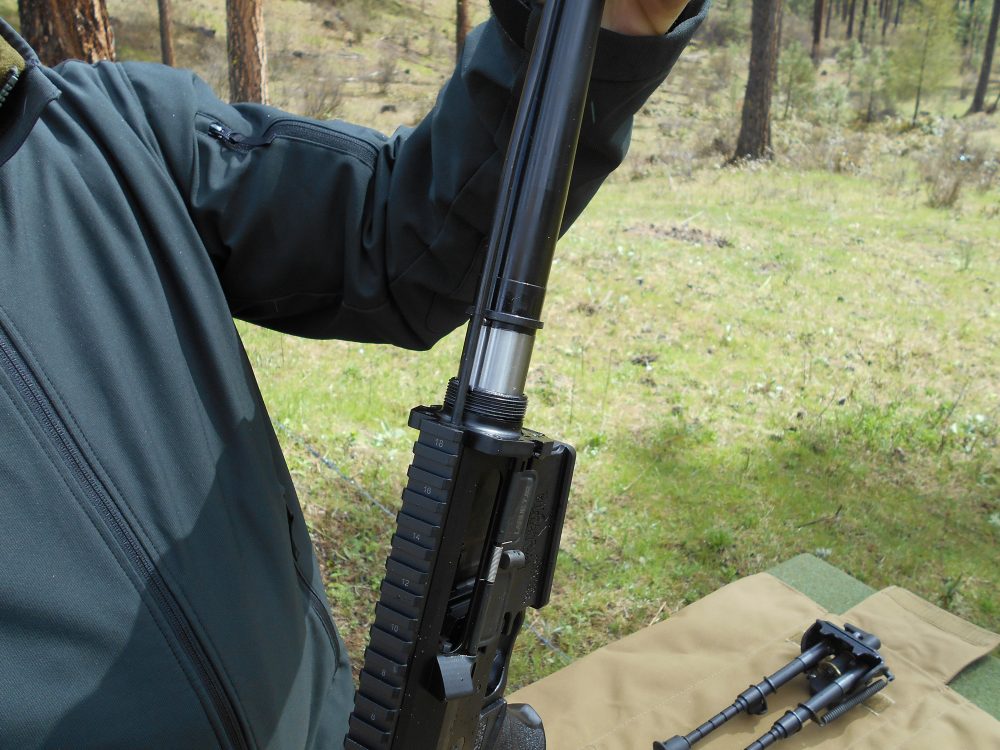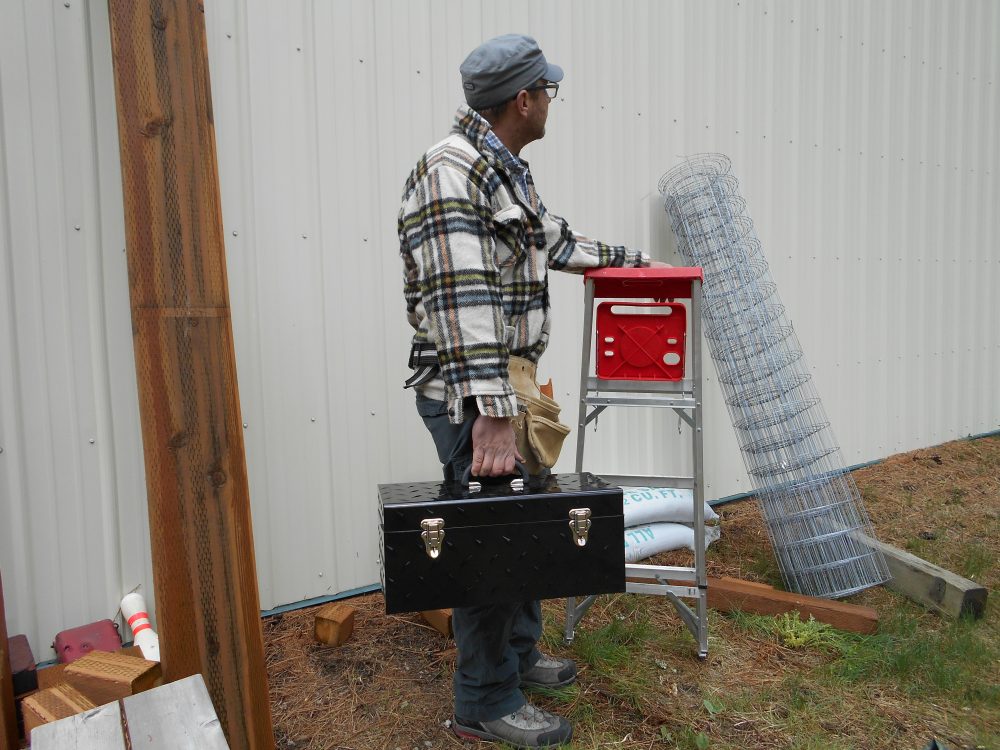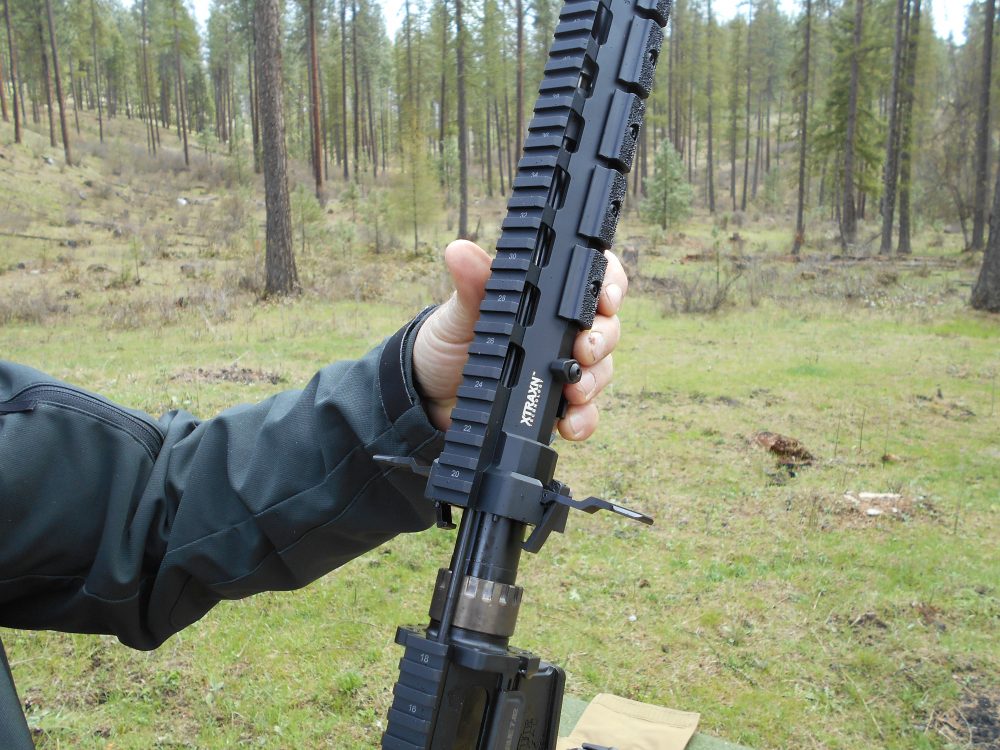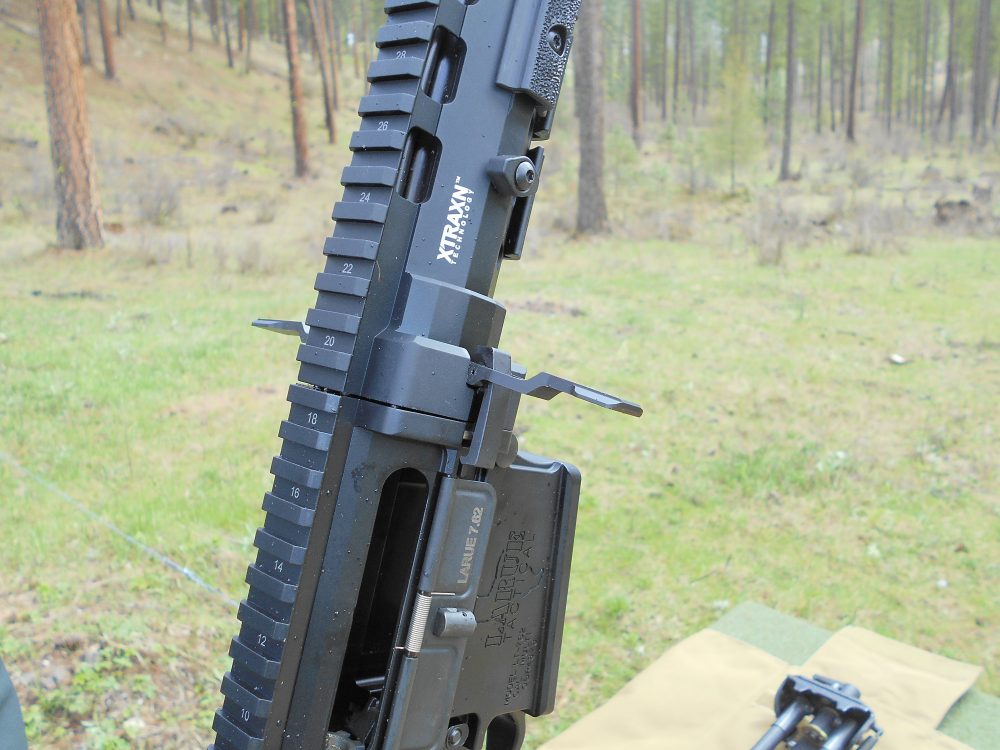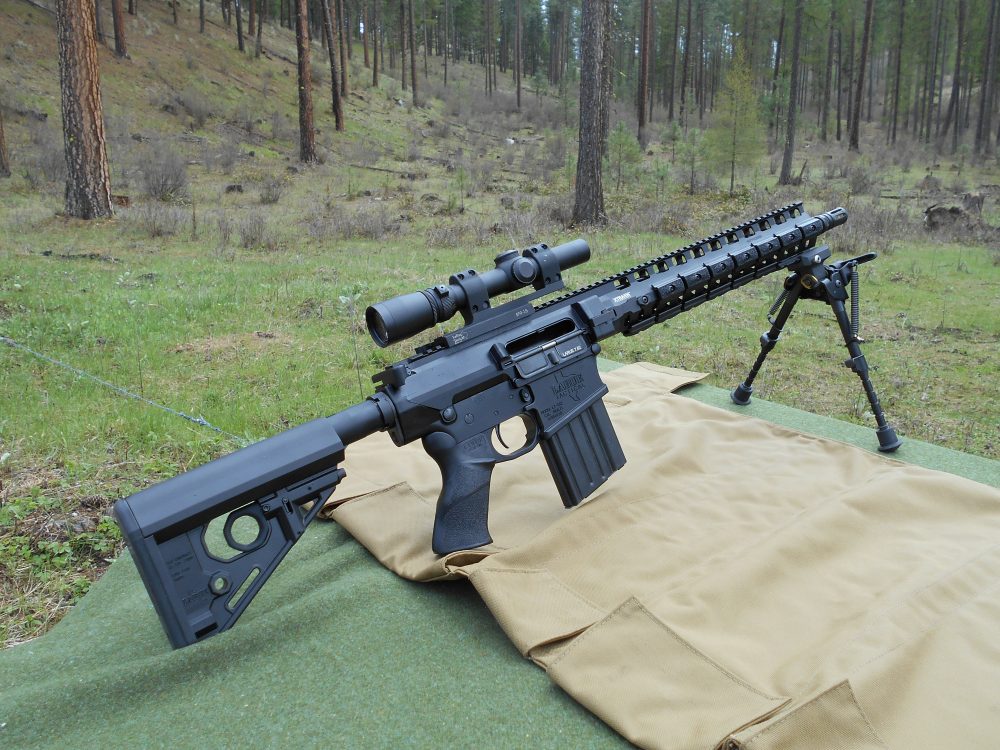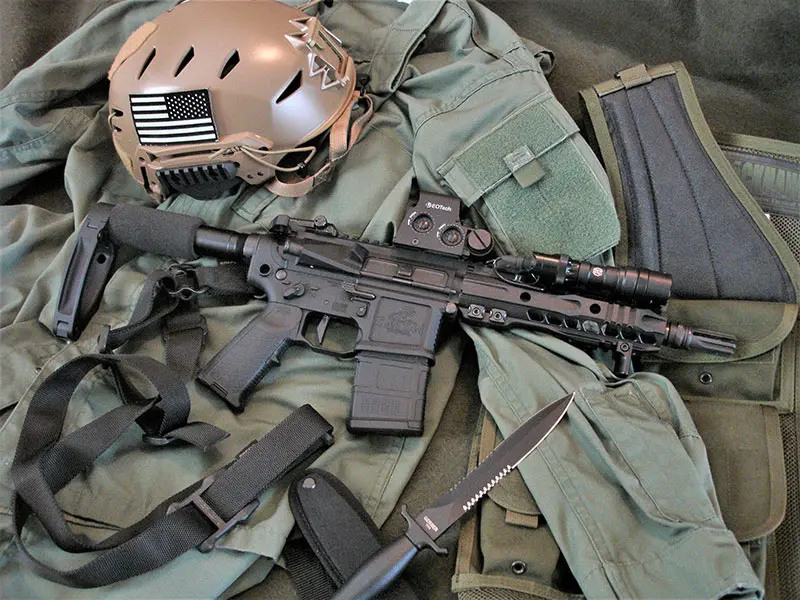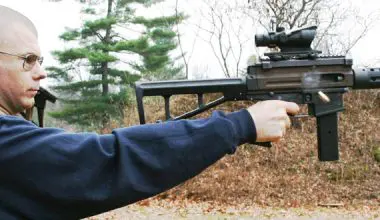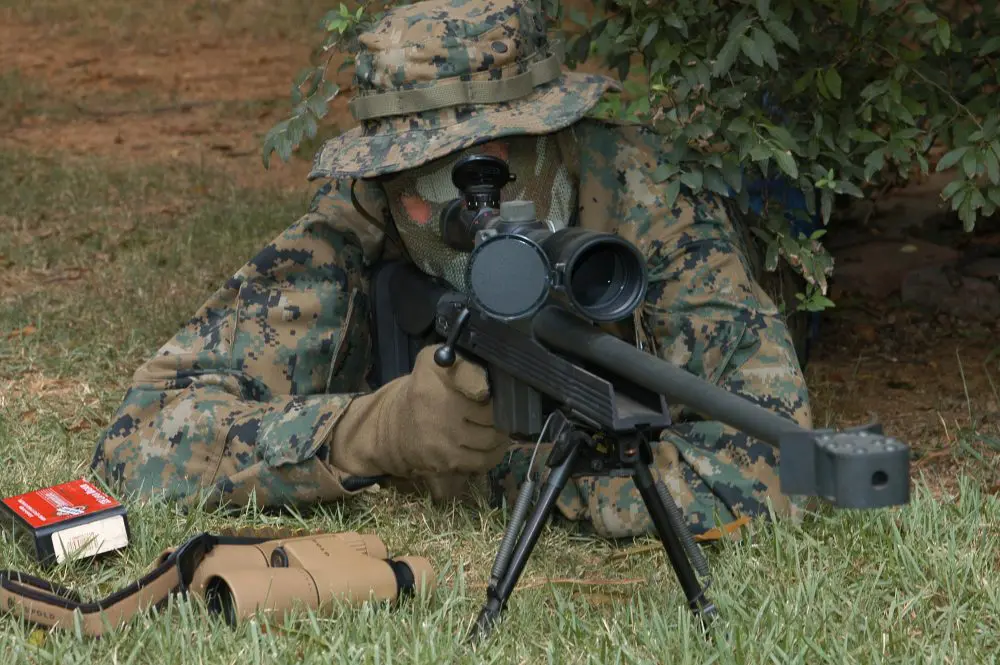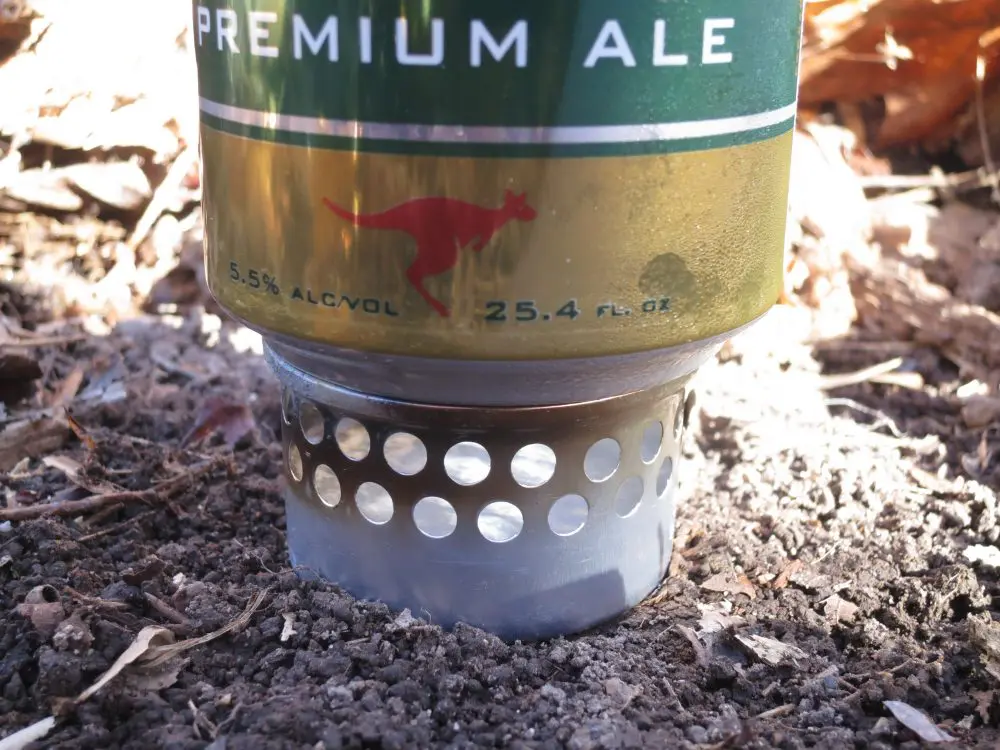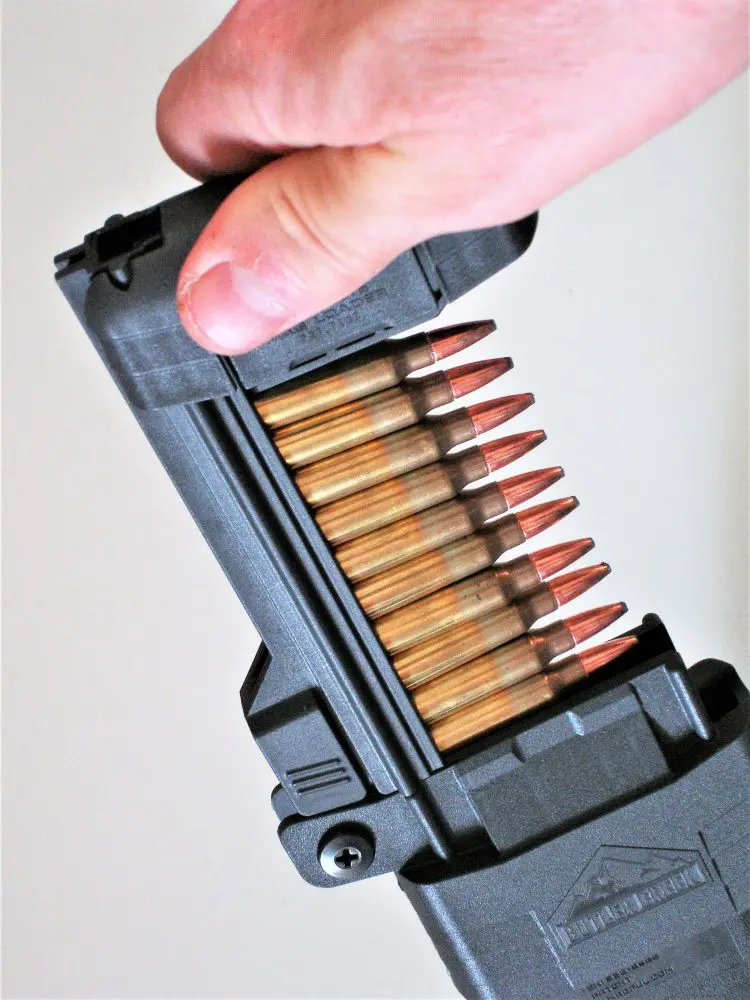A few years ago, the Leupold Academy approached me to team-teach a couple of classes. Leupold was showcasing its optics while providing quality training to law enforcement, so it sounded like a perfect match.
One of the classes was Precision Rifle, which I’ve been well trained in, having completed courses with the FBI, Alaska State Troopers, NRA, Clint Smith, and John Plaster. I’m a decent shot, not a gifted one, and I worked as a sniper on the Troopers’ SERT team for several years.
The second class was Designated Marksman. I’ve been teaching it for several years, and think DM reflects what coppers usually do—stay in a static position, sometimes for hours, and take a shot at reasonable distance from a good position. For most police applications, any AR that shoots a two MOA group is good enough, since most shots will probably be to the body at less than 50 yards. There is no dialing DOPE, just grab the rifle and shoot it as it comes out of the cruiser. A low- or variable-power scope is the ticket for this application.
Zeroing PredatOBR with first nine rounds out of the box. First group, low left with three rounds touching. Second group, low center. Third group, half-minute.
However, some parts of the country may require a longer shot. If you’re a deputy in Arizona, a 200-yard shot is possible if the local biker gang is holed up in the desert. I wanted a rifle for the DM class that was a little more accurate, and I wanted a .308 precision rifle that allowed for faster follow-up shots than my bolt gun.
So I spent some time with Mark LaRue of LaRue Tactical.
I’d just finished teaching a class in east Texas, where I was able to shoot the new Texas Ranger issue LaRue .308. I was headed for the Austin airport but had a little time. I decided to find LaRue’s shop, located in the Hill Country of central Texas. I walked in the door and said I wanted some information about LaRue rifles. Mark happened to be in.
Sgt. Boothe gets feel of PredatOBR.
Table of Contents
TWO LARUES
The short story is that I ordered a 20-inch barreled OBR in .308 and an 18-inch PredatAR in 5.56mm. I ordered the OBR with a fixed stock and the longer barrel since I wanted to maximize the accuracy, and fixed stocks always seem to shoot better for me. I later changed the stock to a Magpul PRS, for better cheek weld and length of pull.
I wrote an earlier article about shooting the OBR at Thunder Ranch (RINGING THE STEEL: Thunder Ranch Mid-Range Rifle Course, September 2013 S.W.A.T.). The gun is capable of one-third MOA or better accuracy and has been totally reliable. Its only drawbacks are its size and weight. With a bipod, 4.5X14 Leupold scope, and loaded magazine, it’s long and heavy.
For the average guy, myself included, it’s not a gun you want to hump all day through the woods. But for static position shooting, at ranges out to 800 yards, it’s perfect. It will shoot as well as any bolt gun and allow fast follow-up shots if needed.
Sgt. Boothe shoots PredatOBR from field position. Scope is 1.5X5 Leupold in LaRue QD mount.
The 5.56 PredatAR is the same story, although not as light as I’d like. I shot it at a recent class. Just to confirm zero with the Leupold HAMR optic, I aimed at the eye of a humanoid target from prone at 50 yards. The five-shot group was one keyhole, all rounds touching. I didn’t measure it, but it was about a quarter inch. And it has been totally reliable, no matter what I’ve fed through it.
Using the 800-yard stadia line on the HAMR optic, I was banging a steel gong at 800 yards with a full-factor light breeze from the left (OK, it was a really big gong …).
The missing link has been a man-portable .308 carbine. I’ve shot most of the major brands, but they all weigh over nine pounds out of the box. I ordered a LaRue .308 PredatAR over a year ago. Like every manufacturer, LaRue is trying to fill back orders. At present, they are still a year back-ordered, but my number came up.
PredatOBR discreet carry case and tool roll full of LaRue components.
.308 PREDATAR
I had ordered a 16-inch carbine with RISR buttstock, which gives a better cheek weld when using a scope. The PredatAR weighs just 7.5 pounds naked and unloaded, which is about as light as you can get in a .308. With the LaRue two-point sling with QD attachments, it’s pretty comfortable to carry. It swings up nicely and has a slender forend without too many chunks of rail to cut your hand.
The .308 PredatAR is all that I thought it would be. The trigger is typical LaRue, very clean and crisp with a 4.5-pound weight and positive re-set. I stripped and cleaned it, stuck a 1.5X5 Leupold in a LaRue QD mount on it, and got shooting.
I rough zeroed it with ball, then shot 100 rounds of mixed ball—Fiocchi, Winchester, PMC, and Serbian and South African surplus—not a burp. I finished with 20 rounds of Remington 150-grain JSP and 20 rounds of Federal 165-grain Tactical with no malfunctions. At 50 cents a round, I figure that’s as much of a reliability test as it gets. I didn’t have a chance to shoot it for real accuracy before the SHOT Show, but three rounds of Federal Tactical were under an inch at 100 yards.
I was lucky enough to get to the LaRue booth early, when there was no line waiting to talk to Mark, and he wanted to show me the latest rifle incarnation.
PredatOBR’s components
NEWEST PREDATOBR
The PredatOBR in .308 is about as unique as you can get in an AR package. The mid-profile 14.5-inch barrel has a pinned two-inch flash hider, making it legal in any free state. Mark said it’s just as accurate as the other guns, and that his daughter had killed an elk with one at over 600 yards. Given my experience with the other three rifles, I have no doubt that this rifle could easily make that shot.
I usually don’t pay attention to cool, but this gun is impressive. The “cool” meter is really pegged with the PredatOBR: think James Bond putting it together to shoot down a SMERSH helicopter.
The gun comes packed in an optional black toolbox, measuring about 10x10x20 inches. The components—stock, receiver, barrel and forend, scope, wrench, and suppressor—are rolled into a nylon case with pockets for each (the gun does not come with glass, mounts or can).
Tightening the barrel nut.
Mark disassembled and re-assembled it in a couple of minutes. The barrel nut was tightened with a standard wrench, and Mark said to, “just reef on it the same every time.” A torque wrench may be included in future models. I was able to whine a test sample out of him for this article.
I used the same formula I did with the PredatAR .308, the same round count and same results. The PredatOBR trigger is lighter, at 3.5 pounds with a lighter reset. The package weighs about ten pounds with glass and loaded magazine. Other than a couple of malfunctions noted below, the gun ran like a sewing machine.
Installing the barrel.
THE SHOOTER
When I get to real, serious accuracy tests, I go to a better shot than I am. I called a local SWAT sniper, Sgt. Rob Boothe, and asked if he’d like to shoot the LaRue .308 PredatAR and PredatOBR. I didn’t even have to promise him beer to get a “yes.” I went to the department range on a clear 60-degree no-wind day and put Sgt. Boothe to work.
Rob opted to run the first rounds through the PredatOBR. We used a Leupold VX-6 Patrol scope in a Leupold mount as I didn’t have a LaRue QD mount with 30mm rings yet. He loaded some Black Hills 168-grain Match into the magazine and went prone over his rucksack to zero. We used LaRue, Magpul, and some after-market magazines for the test.
On a covert operation, no one would expect that this “workman” has a rifle in his toolbox.
The first three rounds touched, low and left, and Rob made adjustments. The second group was bigger, as the aftermarket magazine failed to feed and he had to clear a malfunction after each shot. He dumped that magazine, went back to a LaRue mag, and put three rounds touching on the third group.
We each fired several groups through both guns and were consistently getting two rounds through one hole, and one flyer—we just couldn’t beat that Minute-of-Man thing, so we took a break for chow.
Once back behind the gun, Rob got into his happy place. He shot a half-inch group to warm up, then fired a .4-inch group through the PredatOBR. A 14.5-inch barrel in a take-down package that can shoot sub half-MOA groups is outstanding in my world.
Rob then had to go to work and actually do some police stuff, so we called it a day.
Installing the forend.
ANOTHER WEEK, ANOTHER SHOOTER
A week later, I took both guns out to see what I could do. The weather conditions were about the same, and I was shooting off my bench with sandbags. I used LaRue, KAC, and Magpul magazines and had no malfunctions. Ammo was mixed ball and Black Hills 168-grain Match. I used a Leupold 1.5X5 scope in LaRue QD mount. Chip Trudel, one of my students, stopped by and volunteered to help out with the shooting.
After we confirmed zero, we tried assembly/disassembly from the closed toolbox. We put all the components in the tool roll, then in the box. I’m a mechanical moron, but with a couple of tries I did it in two minutes. Chip’s times were better. After each assembly, we fired one round on steel to make sure it worked. We then worked on take-down and storage. We went from a hit on steel to walking away with a stowed gun in 53 seconds.
I didn’t quite match Rob’s groups, but every group from the 16-inch PredatAR carbine was one minute or slightly less. With the PredatOBR, each group was between .6 and one MOA. I figure the PredatAR is a battle rifle, not a sniper rifle, so if I do my part, I should be able to hit man or beast to 500 yards, easily.
Raising the locking levers and tightening the lock nut.
APPLICATIONS
The PredatOBR would be a great package for any unit that needs to make a covert entry to an O.P.—dignitary protection, narcotics, intel, or any SpecOps team that wants to not look like what they are and what they’re carrying. I estimate that guys like this could take a shot and be gone in less than a minute. With its reliability and accuracy, this is a true sniper rifle that comes in a toolbox.
One of my biggest concerns in a fighting rifle is reliability. Most of us can’t shoot to a rifle’s capability, but the gun has to run. Other than noted, I’ve never shot a LaRue rifle that wasn’t reliable, no matter what kind of ammo I ran through it—from ball, soft points, and Third World military surplus to Black Hills Match. This reliability might be nice today, but could literally be life and death at some point.
Assembled PredatOBR, with scope, bipod and tool roll.
I’ve now shot most of the .308 ARs on the market, and I’d use any that I’ve tested in a fight. Objective things like weight and trigger weight are easy to measure. Subjective things like how it feels are tough to articulate, but we all know that different guns feel “good” or “bad” when we shoot them. If you can get a rifle that’s reliable, accurate, and feels right, you win. LaRue aces all three.
LaRue guns are expensive, but if you’re serious about reliability and accuracy, they’re worth every penny.
SOURCES:
LaRue Tactical
(512) 259-1585
www.larue.com
Black Hills Ammunition
(605) 348-5150
www.black-hills.com
Leupold & Stevens, Inc.
(503) 526-1400
www.leupold.com
